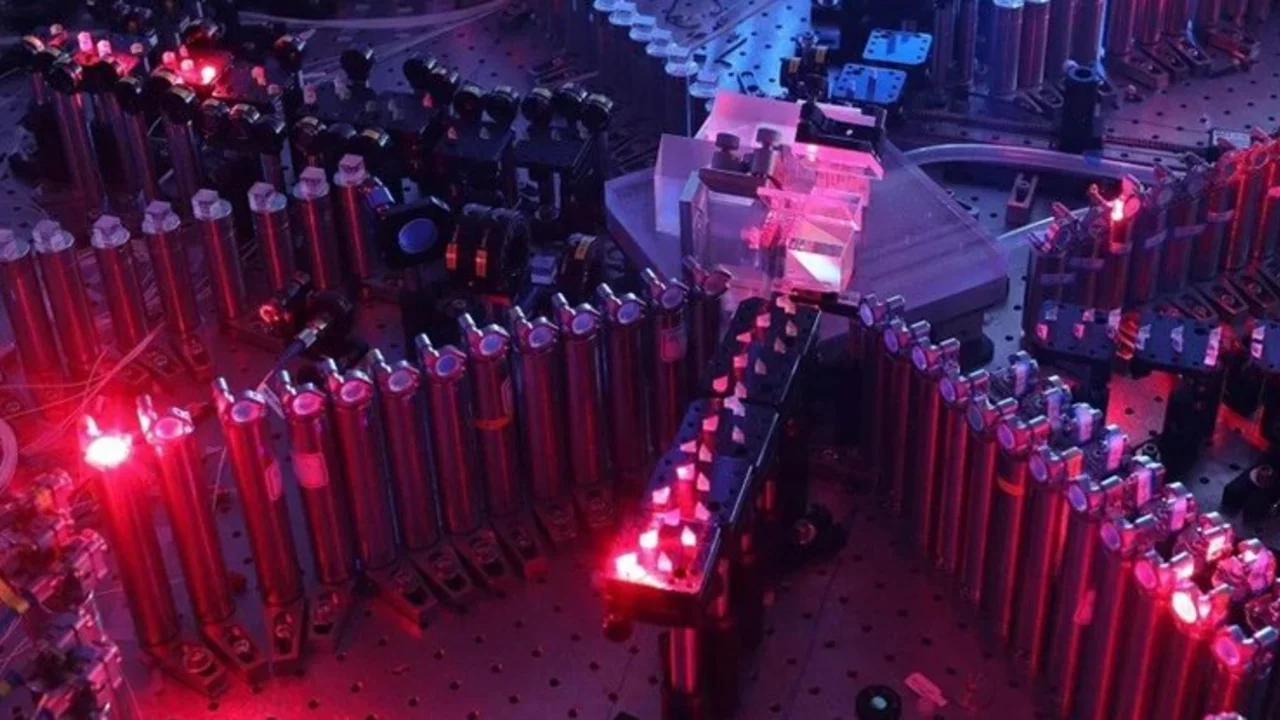Is China ahead of the US in Quantum computing now?
 Jul, 29 2023
Jul, 29 2023
The Dawn of Quantum Computing
Long before you or I could probably pronounce the word "quantum", it was fast becoming the latest in exciting scientific jargon that Hollywood grabbed hold of in earnest. More than just a fancy word, quantum computing promises to revolutionize the field of information technology. But hey, you already knew that. The quirk (a little quantum pun for you there) is that the race to achieve reliable quantum computing supremacy has become a hot topic on the global stage. The contenders? As it turns out, the United States and China.
Sometimes, sitting here in sunny Perth, I feel like a spectator watching a thrilling science-fiction movie unfolding in real-time. Countries poured significant investment into quantum research, have crossed significant milestones. However, analysts, experts, and people on Twitter are asking the same question: "Is China ahead of the US in quantum computing now?". So, let's put on our detective hats and start investigating.
Understanding Quantum Computing: More than Glorified Magic
Quantum computing is a field that even scientists agree is utterly mind-boggling. And trust me, when the smartest folks in the room are puzzled, you know it's serious. Unlike our conventional computer systems, quantum computing doesn't operate on bits (those 1s and 0s we all pretend to understand); instead, it uses qubits. Qubits, in simple language, can exist in multiple states at once, substantially increasing processing power. This means quantum computers will be able to solve problems in minutes that would take conventional supercomputers millions of years. Now, doesn't that sound like something out of a sci-fi novel?
The Quantum Race: The US vs. China
The race to achieve the crown in quantum computing supremacy has been just short of the thrill that the space race conjured up. A notable difference here is the rivalry is not just between public sectors but also private entities in these countries. The US, known for its innovation hubs like Silicon Valley, has behemoths like Google, IBM, Microsoft entrusting effort in quantum research. On the other hand, China pushes both its public and private sectors towards quantum research, backed by massive government funding.
China's Quantum Leap
China is not just racing; it is sprinting towards the finish line. Back in 2020, some folks at the University of Science and Technology of China set the scientific world abuzz when they announced the development of a quantum computer, Jiuzhang, which performed a specific task 100 trillion times faster than the world's fastest traditional supercomputer. Now, if that's not a quantum leap, I don't know what is!
The Jiuzhang Quantum Computer: A Look Inside
I figured, to judge China's position in this race; we need to understand how their champion, the Jiuzhang quantum computer, works. Now, I'll spare you the boring scientific lingo and give it to you straight. The Jiuzhang utilizes light particles, known as photons, for their quantum computing purposes. Now, remember when I said about qubits existing in multiple states at once? Yeah, these photons do precisely that - exist in multiple locations at once. Simple, right? (Don't worry, I'm just as baffled as you are).
Is America Fading Behind?
Quick question: Can you imagine a race where Usain Bolt starts fading away? Yes, me neither. While China has made promising leaps, it's unwise to write the US out of the equation. The US's quantum research is decades old, and they have deep-rooted cooperation with private sectors. Back in 2019, Google’s quantum computer, Sycamore, boasted about reaching "quantum supremacy" by performing a task in just over 3 minutes; it would have taken traditional supercomputers 10,000 years.
Sycamore's Nuts and Bolts
Should we take a look under the hood of Sycamore? Just like the towering trees it's named after, Google's Sycamore is quite complex and massive. Instead of using photons like Jiuzhang, Sycamore uses something called "quantum bits" or qubits. These tiny actors can exist in multiple states - like Schrodinger's proverbial cat - and they bring immense processing power to the table.
The Current View from the Finish Line
After all is said and done, where do we stand? Who's winning? Well, the answer is a little tricky. Advancements in quantum computing are about more than just speed. They're about error correction, stability, and the ability to solve practical, real-world problems. Both nations have scored victories in the speed department, but there's more to this race. If it's any consolation, the suspense sure does make for some fabulous dinner-time conversation!
On a semi-related note, quantum computers make me think about my old computer from the early 2000s. It was a hunk of metal that made a sound like a jet taking off and moved at the pace of a snail on a casual stroll. Quantum computers might be a little out of my price range at the moment, but here's hoping they'll become household items before my current computer bites the dust. Now, wouldn't that be something?